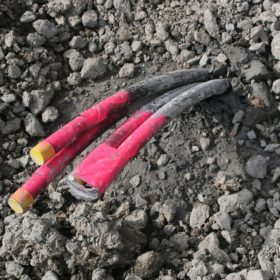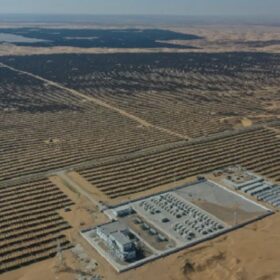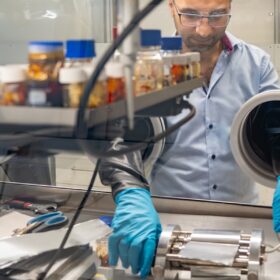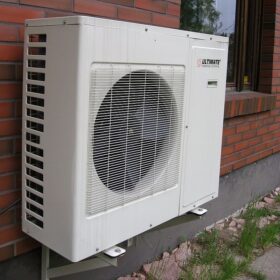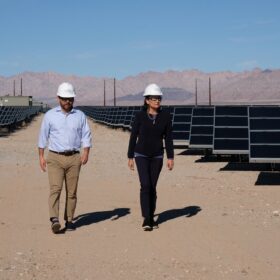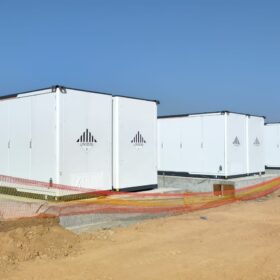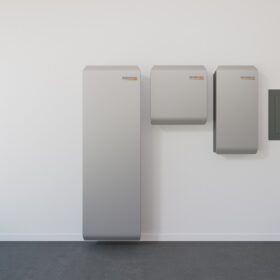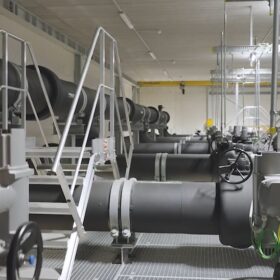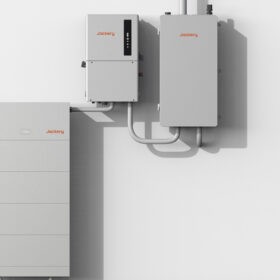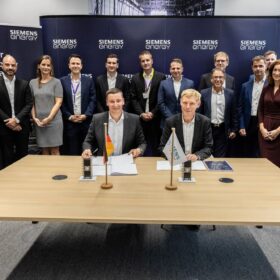Using surplus PV power for seasonal underground thermal storage
Scientists have proposed a new system that uses surplus PV energy in the spring and the autumn to charge up underground thermal energy storage for later use in the summer and winter. They have simulated it on a school facility in Seoul, with a few optional configurations for thermal storage. Power savings were up to 39%.
Works begin on 1.4 GWh Inner Mongolia project combining lithium-ion, redox flow storage technologies
The Dengkou Renewable Energy Storage Project is billed as the largest single-capacity energy storage station under construction in China.
Aluminium-polymer battery for stationary electricity storage
The device developed by TU Bergakademie Freiberg researchers uses aluminum as an anode, graphite as a cathode, and a polymer-based solid electrolyte. It is being validated and further developed for industrial production. The goal is storage capacity of 10 kWh.
New refrigerant may improve coefficient of performance of air-source heat pumps by up to 21%
Developed by a Chinese research group, the novel refrigerant is made of a mixture of carbon dioxide (CO2) and a non-flammable hydrofluoroolefin. It has slightly higher costs compared to conventional compounds, but its creators claims these costs could be significantly reduced with large-scale industrial production.
2.8 GWh collocated battery storage project lands US government approval
The US Department of Interior has given the green light to Nevada’s largest solar+storage development, the Libra Solar Project. It has also opened a comment period for the Bonanza Solar Project, which features a 195 MW/780 MWh battery storage system.
Brazilians ready to embrace storage amid rising energy bills, falling battery prices
The conditions are in place for the country’s battery energy storage market to expand at a compound annual growth rate (CAGR) of 20% to 30%, as Holu Solar’s Sophia Costa explained.
Generac presents new residential batteries
The US-based storage system providers said its new batteries are configurable in 3 kWh modular increments up to 4 cabinets per site. Their roundtrip efficiency ranges from 88% to 91%.
Netherlands’ largest wastewater heat pump goes online in Utrecht
The largest heat pump in the Netherlands is now online at the Utrecht sewage treatment plant. It generates heat up to 75 C for the local network by using purified hot wastewater from a regional water authority.
Jackery, Geneverse present new residential energy storage system
The two US-based companies are showcasing their new home energy system with up to 123.2 kWh of storage at RE+ 2024 event in the United States. The new product has four MPPTs, with a max current of 16 A per string.
The Hydrogen Stream: Hamburg to install 100 MW electrolyzer system
The Hamburg Green Hydrogen Hub has tapped Siemens Energy to provide and install six electrolyzers for a 100 MW system, with construction set to begin next year and commercial operation expected by 2027.
